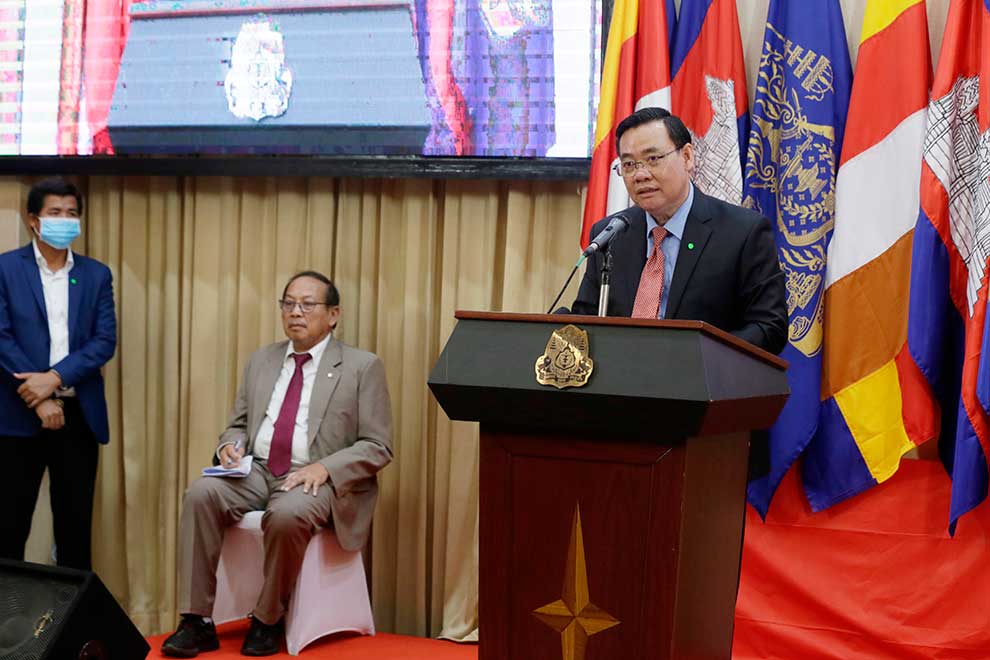
Interior ministry undersecretary of state Chan Sothea speaks during a press conference at the Council of Ministers on Tuesday. Heng Chivoan
The government has increased funding for all sub-national administrations to more than $1 billion in 2022, with each district and commune administration receiving an average of $570,000 and $127,000 respectively, according to a senior Ministry of Interior official.
Ministry undersecretary of state Chan Sothea said on January 11 that the money is intended for the implementation of the second phase of the national programme from 2021-2030.
He said the government had established a financial management system for sub-national administrations in line with the principles of financial decentralisation, which is to transfer funds to the commune and district-town administrations to enable them to independently use those financial resources efficiently, transparently and accountably.
“Within the framework of financial decentralisation and following the success of public financial management reform, we’ve increased the transfer of state funds every year to the subnational administrations,” Sothear said.
He said that for 2022, the sub-national administrations receive a total budget of $1.43 billion, with $207 million of that for communes which will receive around $127,000 a year each on average, a huge increase compared to 2002 when only $4,500 was provided.
For town-district administrations, the total funding is $139 million, with each town or district receiving more than $570,000 a year. It’s another jump in the annual budget as compared to 2013 when each town-district had on average $79,353 available, he said.
The amount of funding for each commune or district varies according to their size. Some of the largest communes can receive over $200,000, while a large town or district might receive over $800,000 each year.
At the capital and provincial level, a total of $697 million has been transferred to those administrations this year, with nearly $170 million of that in the health sector.
Sothea said financial decentralisation enables local administrations to efficiently manage and utilise funds to address their particular challenges, provide public services and invest in local development appropriate to the needs of their people.
“We transfer functions and transfer people, so now we transfer budgets. If we grant [sub-national administrations] functions, powers and human resources, but we do not give them any funds along with all that then they won’t be able to succeed,” he said.
“For example, we can step back and allow them to build roads according to local needs at their own discretion, but if we don’t give them money to do that then they can’t get it done and then nobody ends up doing it. So, it is necessary to transfer financial resources to the sub-national level.”
Khim Finan, Banteay Srei district governor in Siem Reap province, said the government planned to increase the funding of the sub-national administrations in 2021, but due to Covid-19, the project was postponed until 2022.
“Increasing the budget for local development is very important when preparing to make improvements at the local level, especially on infrastructure systems,” he said.
Advocacy and Policy Institute (API) director Lam Socheat said he appreciated the increased budget available for the administrations at the sub-national level, saying it will increase accountability and services provision to the people.
He noted, however, that about 90 per cent of the budget transferred to the sub-national level was spent on infrastructure development such as roads and irrigation systems and infrastructure in some areas has been improved a lot by letting local administrations set their own spending priorities.
“This approach should also be taken with the funding of social programmes like projects to help vulnerable children and youths or vocational training for school drop-outs, with local administration and targeting specific local needs,” Socheat said.














